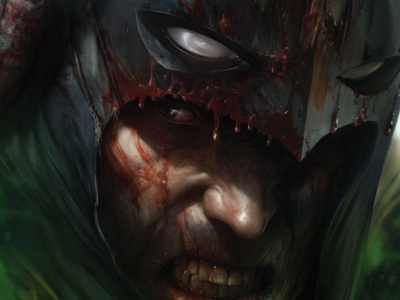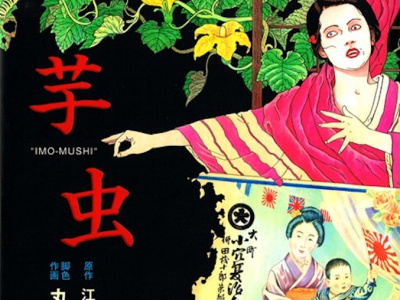
I Think I Can Manage is a weekly column by retailer Steven Bates, who runs Bookery Fantasy, a million dollar retail operation in Fairborn, Ohio. This week Bates examines the case of one Gordon Lee, a comic retailer going on trial in September.
Georgia comic book retailer Gordon Lee goes on trial September 12, facing numerous counts of violating local and state laws regarding obscenity. At a Halloween event in 2004 Lee, owner of Legends in Rome, GA, allegedly distributed copies of Alternative Comics #2, a Free Comic Book Day comic that included nudity. The laws Lee allegedly violated are designed to protect citizens of Georgia (including but not limited to minors) from receiving 'material depicting nudity or sexual conduct.' Two of the charges alone, should Lee be convicted, carry penalties that could cost Lee $20,000 in fines and/or six years in prison. The Georgia retailer is being represented by counsel from The Comic Book Legal Defense Fund.
Now, my knee-jerk reaction to this is to tell the people of Georgia to lighten up. This kind of persecution (Lee has faced similar charges before) reeks of inquisition. The nudity in question is of Pablo Picasso -- hardly erotic by most standards, and arguably more artistic than titillating -- and was presented in a comic book designated as 'alternative,' not mainstream, fare. Lee's 'crime,' it seems, was to promote thinking outside the box imprisoning community standards. All this in the 21st century, too.
But maybe it's ME that needs to rethink my standards, my beliefs. Like Lee, I participated in Free Comic Book Day 2004, and I too faced the dilemma of how to distribute Alternative Comics #2 (among others). At Bookery Fantasy, we established a tiered distribution model based on content and the age of the customer, which we utilized again this year for FCBD. It just didn't seem responsible and possibly not even legal, to pass out certain books to under-aged customers. Sorting through the FCBD material and self-policing the distribution created a fair number of hassles, and dulled our enthusiasm for the event slightly. Truthfully, it made our 'holiday' seem too much like work.
So maybe the problem lies not with the good people of Georgia, who, constitutionally, have a right to protect themselves from any material they deem obscene. Nor does it lie with Gordon Lee, or Bookery Fantasy, or any of the hundreds of retailers who ordered Alternative Comics #2 in good faith, intending to distribute it alongside the Marvel, DC, Dark Horse, and other samplers. Maybe the crux of the problem is with the publishers who fail to see the full potential, both good and bad, of Free Comic Book Day.
First, let me state that Alternative Comics #2 is NOT pornographic. Nor is it obscene, in my opinion. But it does contain elements that most reasonable people could see might be offensive to some, namely nudity (and possibly strong language, though I can't find my copy to reference). Sure, almost ANYTHING can be offensive to someone -- religion, politics, eating meat, drugs, alcohol, tobacco, firearms -- so self-censorship can be a slippery slope of second-guessing your audience, a downhill slide into blandness and banality. But nudity in comics has always touched a nerve with people, as comic books are so widely perceived in our culture to be simply a form of children's literature. Unlike countries like France, Japan, and Denmark, where comic strips and books are as highly regarded as novels, film, and theater, Americans still believe comics are for kids. Everyone in the industry knows that, and the best of us do everything we can to alter the public's perception, to foster acceptance of the medium as a legitimate hybrid form of art and literature.
I'm sure the editors of Alternative Comics #2 thought they were doing just that, educating the masses to the broader possibilities of the medium. Despite all the publicity and attention brought to the industry by their product, the publishers must also realize that a man's livelihood and very life are on trial as a result of their choices, begging the question 'do the means justify the ends?' And in Gordon Lee's case, will justice mean doing the time?
For future Free Comic Book Days, I'd like to see established a set of guidelines for publishers to follow, restricting the content to all-ages appropriate material. While this might impair some publishers, I believe anyone inspired and creative enough to produce comic books should be capable of communicating their ideas and concepts without nudity and vulgarity. Take Top Shelf Tales, also from FCBD 2004. Featuring stories by James Kochalka, Scott Morse, Jeffrey Brown, and Aaron Renier, Top Shelf Productions' sampler was edgy, alternative, and clearly aimed at readers not particularly interested in mainstream super-heroics. Yet, Top Shelf Tales contained no nudity, no swearing, and no overt references to drug and alcohol abuse. In other words, it was 'safe for the kids' without diluting the alternative image of the publisher (whose books usually carry 'Young Adult' or 'Mature' ratings).







